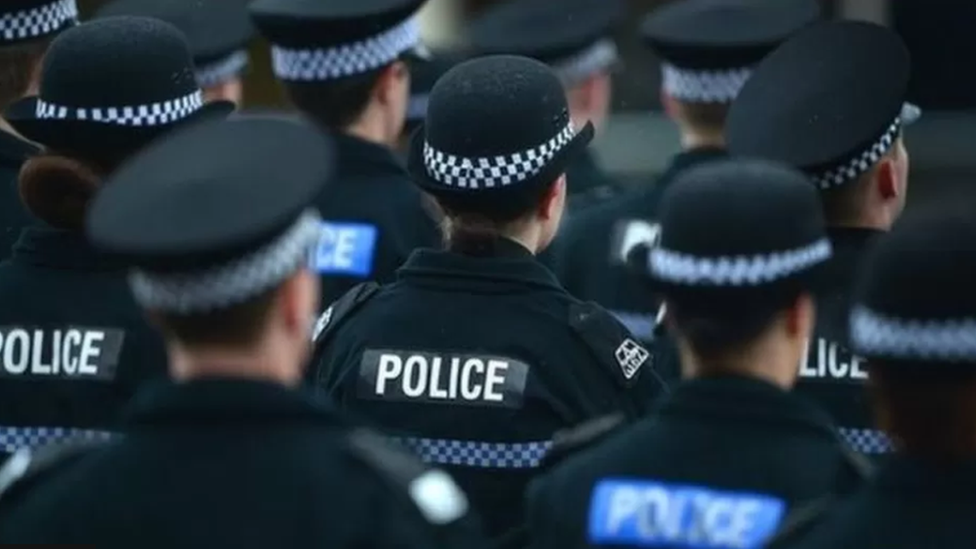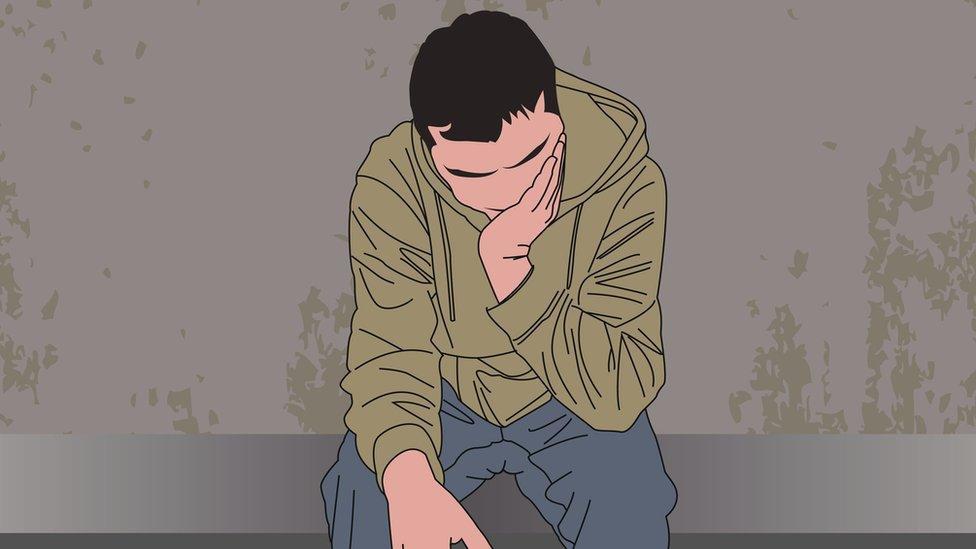Police plan to cut violence against women tackles incels
- Published

Police Scotland said 'men's rights' or 'toxic masculinity' advocates were a gateway to more extreme forms of misogyny
Police Scotland is developing a strategy to tackle violence against women and girls that includes dealing with incels.
Short for "involuntary celibate", the movement has been linked to mass killings in the UK and North America.
Police Scotland presented its plan to the Scottish Police Authority policing performance committee, with a number of recommendations.
The force also said it recognised the need to deal with sexism in its ranks.
Work on the strategy was announced in 2022 following events such as the murder of Sarah Everard by a serving Metropolitan Police officer.
It also emerged last year that more than 100 Police Scotland officers were investigated in the previous four years over sexual misconduct claims.
Launching the strategy, Dep Ch Con Jane Connors said they were "committed to creating a society where women and girls live free from violence, abuse, exploitation and harassment" and would prioritise the needs of victims and survivors.
"Our role is crucial, but policing alone cannot stop violence against women and girls" she said. "Our strategy outlines the actions we will take as a service, together with our partners.
"We will continue to engage, to work with our partners, to improve our response and to drive the change needed to end violence against women and girls."
'Unacceptable beliefs'
The report was based on engagement with the general public, women and girls, survivors of violence, key partners, academics and experts.
It defined incel culture as an ideology where male supporters believe women are to blame for their lack of intimate relationships and as a result should be verbally, physically or sexually assaulted.
The largely online community meet across various platforms in what is referred to as the "manosphere".
Relatives of five people killed by a gunman in Plymouth in August 2021 have previously urged the UK government to take action against incels in new online safety laws.
Jake Davison had discussed the movement on social media before killing his mother and four others.

Jake Davison worked as an apprentice crane operator in Plymouth's Dockyard
The police report stated: "The gateway to more extreme forms of misogyny are often self-styled 'men's rights' or 'toxic masculinity' advocates who promote archaic, demeaning opinions about women and their role in society."
It added: "We will challenge these unacceptable beliefs and look to establish the scale and potential threat arising from these individuals."
Police hope to reduce violence through prevention work, pursuing perpetrators, delivering trauma-informed training to all police officers and staff, and creating "safe spaces".
The force plans to work with other agencies to raise awareness of the issue in educational establishments and workplaces.
Lack of trust in police
Research carried out for the strategy found that 57% of respondents chose not to report violence to the police for reasons including a lack of trust.
Reports of sexual crime and domestic abuse continued to increase and both remain under-reported, police said.
Between April and December last year, reports of overall sexual crime decreased by 4.5% - 510 crimes, from 11,347 to 10,837- when compared to the previous year.
However, reporting of sexual crime increased by 6.6% - up 672 crimes from 10,164 - against the five-year mean.
The force said it would it would make every effort to ensure that officers and staff who exhibit misogyny and sexism will receive the "maximum penalty" for their actions, both criminally and through misconduct proceedings.
Dep Ch Con Connors said: "As an organisation we are not immune from the sexism and misogyny that is at the root of this violence. Our strategy recognises the work that needs to be done internally."
It plans to lobby for legislative change "which allows us to dismiss these employees more easily."
Police Scotland also admitted that its vetting procedures were under resourced compared with others in the UK.
Overall, it said full implementation of the strategy depended on "appropriate funding" being made available.
The strategy will be subject to final discussion by the full SPA board next week.
- Published7 March 2023

- Published19 January 2023

- Published21 February 2023

- Published23 September 2022

- Published13 August 2021
